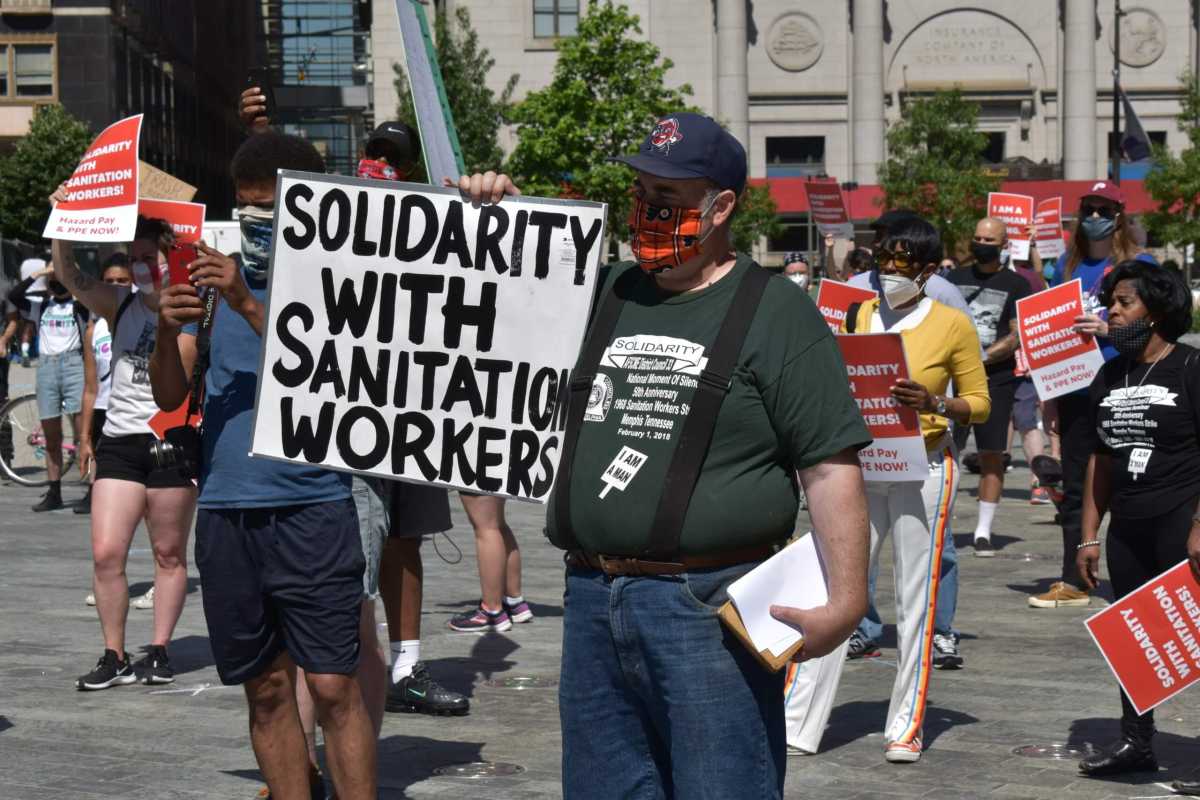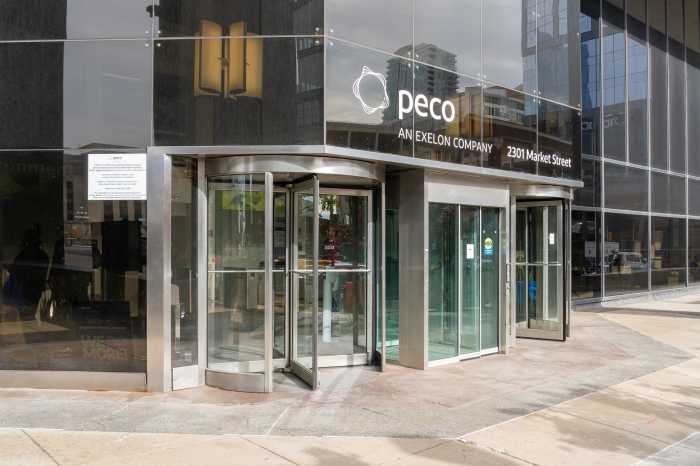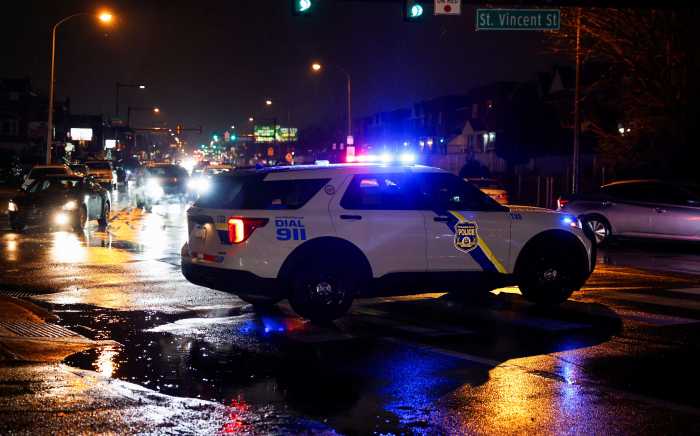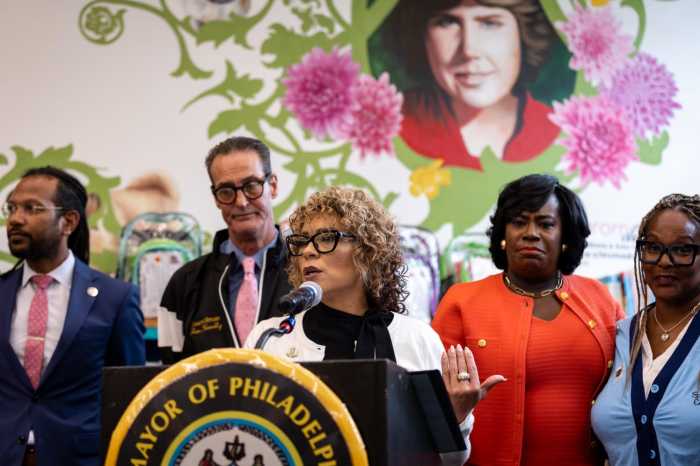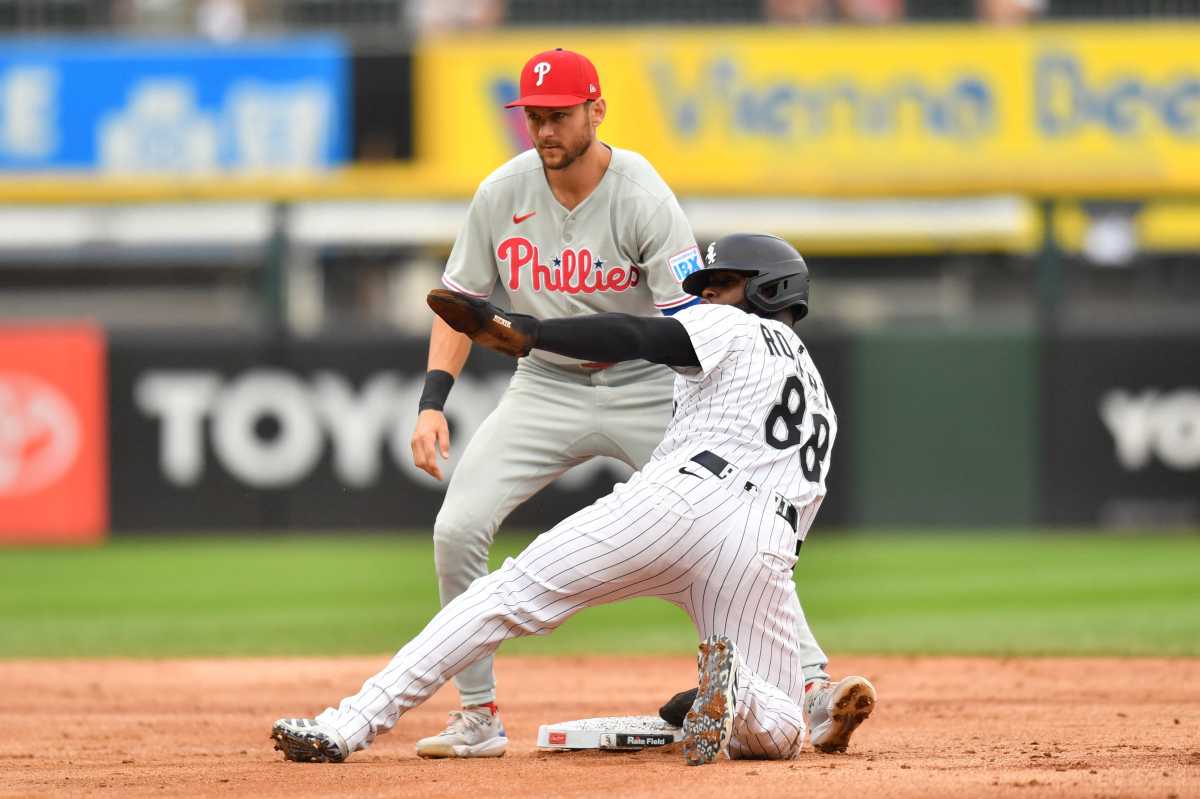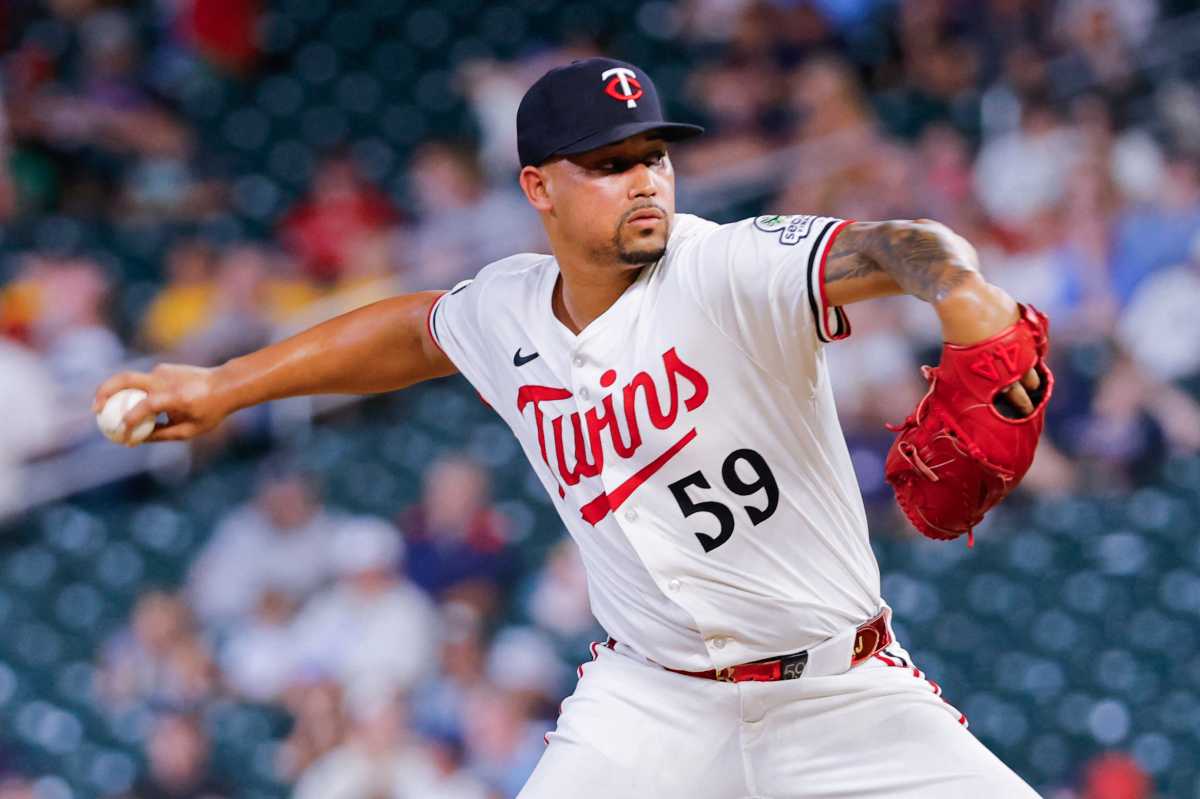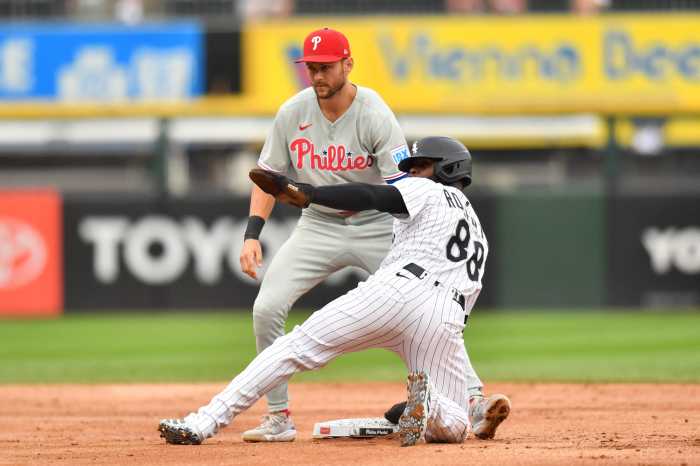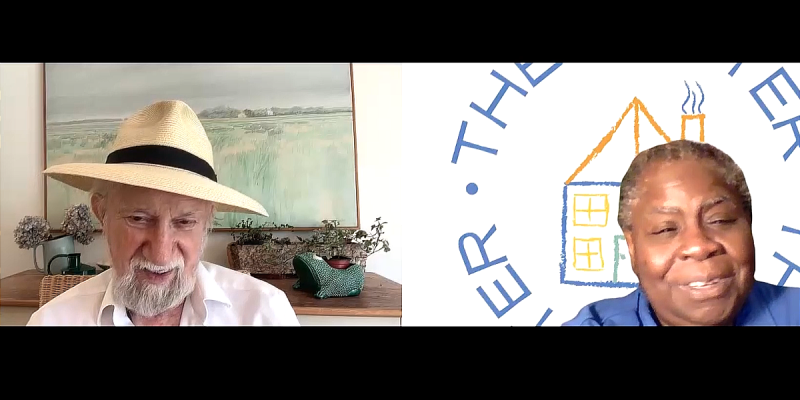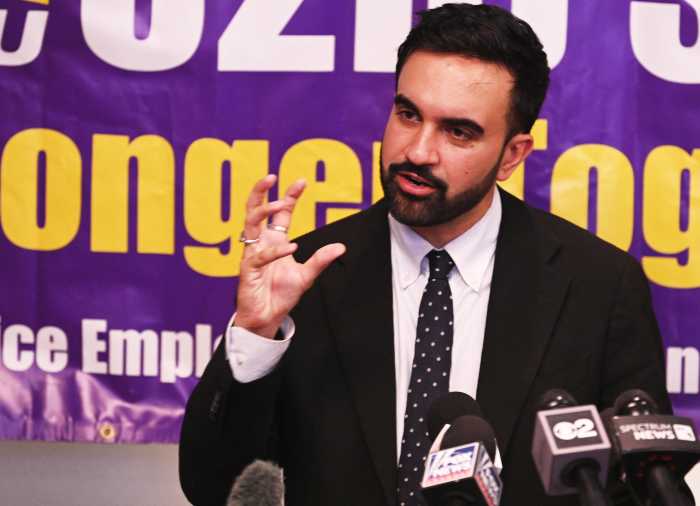For 10 days, Durrell Rotchwell said he had a fever and chills as a result of the coronavirus, which he believes he caught from another trashman on his truck.
“It’s not possible for us to practice social distancing,” said Rotchwell, who said he passed the infection to one of his children.
Rotchwell was one of more than 100 sanitation workers and other city employees who rallied Tuesday morning in Love Park to demand better working conditions for Philadelphia’s trash collectors.
Union leaders, who said about 50 sanitation employees have tested positive for the virus, demanded hazard pay, typically calculated as time-and-a-half, and said they are not receiving proper personal protective equipment, which city officials deny.
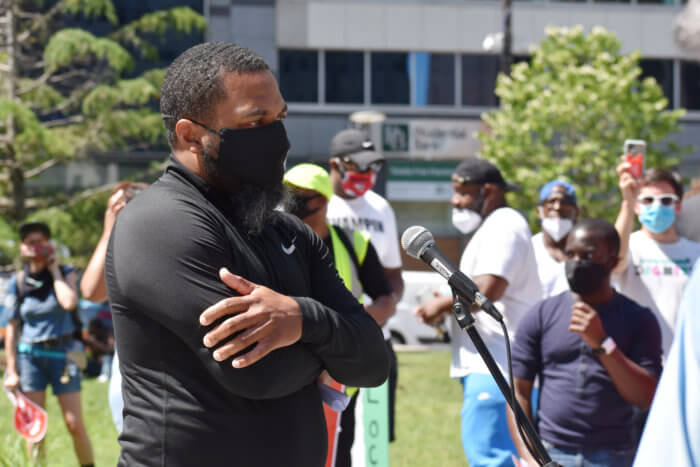
“We have been asking this department for proper PPE since day one,” said Charles Carrington, president of AFSCME District Council 33 Local 427, which represents employees in the city’s Streets Department.
Carrington held up a flimsy mask, which he said is not enough of a safeguard against the infection. Workers said they have had to buy their own PPE and cleaning supplies.
“Even when I went back to work, I had to clean my truck with my own stuff,” Rotchwell said. “I had to buy my own stuff. They don’t provide us any of that stuff.”
A spokesperson for Mayor Jim Kenney said thousands of masks and gloves have been distributed to trash collectors, in addition to hand sanitizer, face shields, wipes and safety glasses.
“The Administration disagrees with the underlying premise of the particular argument being raised during today’s demonstration,” the Mayor’s Office said in a statement.
“As with all entities across the country, the City has experienced some challenges with supply and delivery of this equipment due to high demand,” the statement added.
Managing Director Brian Abernathy, during a press briefing May 28, said the city could not bring back every-week recycling due to staffing shortages, which he attributed to a “labor issue,” not COVID-19 infections.
“When we had our emergency salary provisions in the last two weeks of March, those attendance issues disappeared,” Abernathy said. “Then, when that time-and-a-half was no longer offered, our attendance issues reappeared.”
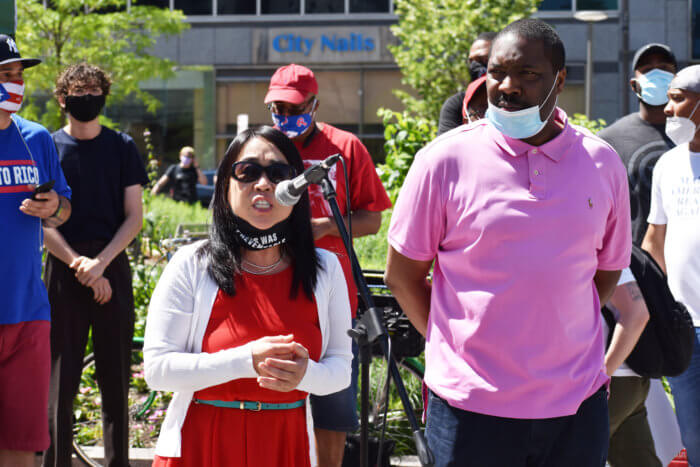
Later in the briefing, he backtracked and said he did not know the cause of the staffing shortages.
The city was offering hazard pay to essential employees after the virus first came to Philadelphia, but the benefit expired in late March.
A city spokesperson said the call-out rate for sanitation workers continues to hover between 20 and 25 percent.
Union leaders at the rally argued trash collectors deserve hazard pay because they are at higher risk of getting the coronavirus and bringing it home to their families.
“We’re not asking for the whole pie, but we want our share,” Carrington said.
Some at the event took issue with Mayor Jim Kenney’s revised budget proposal. It includes $18 million less for the Streets Department compared to his original plan while controversially bumping the Philadelphia Police Department’s budget by $14 million.
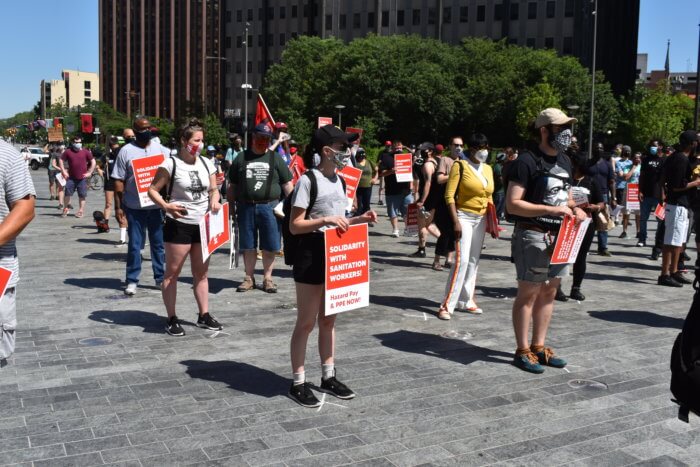
Protesters chanted “We don’t need more PPD when workers don’t have PPE” and “Hey Kenney, can’t you see, sanitation needs PPE.”
On Tuesday afternoon, the Mayor’s Office announced Kenney will no longer be pursuing the police budget increase, following a letter signed by 14 Council members opposing the move.
Council members Cherelle Parker, Kenyatta Johnson and Helen Gym appeared at the rally and vowed support for sanitation employees.
“Don’t you dare give up now,” Parker told those at the protest. “We will negotiate through this budget process, and we will make sure that we continue to push for hazard pay and PPE for sanitation workers now.”

Metro is one of more than 20 news organizations producing Broke in Philly, a collaborative reporting project on economic mobility. Read more at brokeinphilly.org or follow on Twitter at @BrokeInPhilly.



